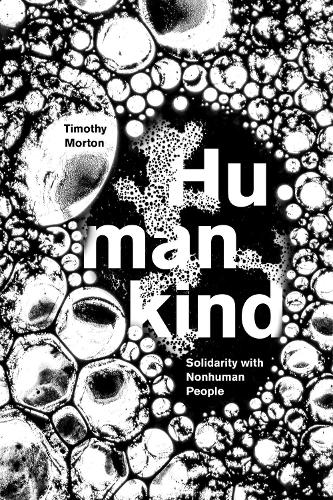
Humankind: Solidarity with Non-Human People
(Hardback)
Available Formats
Publishing Details
Humankind: Solidarity with Non-Human People
By (Author) Timothy Morton
Verso Books
Verso Books
1st October 2017
United Kingdom
Classifications
General
Non Fiction
Western philosophy from c 1800
Social theory
128
Physical Properties
Hardback
224
Width 140mm, Height 210mm, Spine 21mm
392g
Description
What is it that makes humans human As science and technology challenge the boundaries between life and non-life, between organic and inorganic, this ancient question is more timely than ever. Acclaimed object-oriented philosopher Timothy Morton invites us to consider this philosophical issue as eminently political. In our relationship with nonhumans, we decide the fate of our humanity. Becoming human, claims Morton, actually means creating a network of kindness and solidarity with nonhuman beings, in the name of a broader understanding of reality that both includes and overcomes the notion of species. Negotiating the politics of humanity is the first crucial step in reclaiming the upper scales of ecological coexistence and resisting corporations like Monsanto and the technophilic billionaires who would rob us of our kinship with people beyond our species.
Reviews
I have been reading Timothy Morton's books for a while and I like them a lot. -- Bjork
Considered by many to be among the top philosophers in the world, especially among those tackling issues related to human effects on our environment, Morton herein provides an important, spirited, and sometimes frenetic analysis of the foundational assumptions of Marxism and other -isms with regard to nature and culture. -- Jeff Vandermeer, author of The Southern Reach trilogy * The Millions *
A very good introduction to what Theory (capital T) might have to say about climate change and species die-off. -- Ted Hamilton * Los Angeles Review of Books *
Timothy Morton is the Montaigne of the Anthropocene. -- Stuart Jeffries, author of Grand Hotel Abyss * The Guardian *
Morton's terminology is slowly infecting all the humanities -- Alex Blasdel * The Guardian *
Drawing from the Buddhist understandings of emptiness and form, Morton develops a version of 'object oriented ontology' that seeks connection and particularity without essences, fully formed identities, or wholes. -- Whitney A Bauman * Religious Studies Review *
Author Bio
Timothy Morton is Rita Shea Guffey Chair in English at Rice University. He is the author of Dark Ecology: For a Logic of Future Coexistence; Nothing: Three Inquiries in Buddhism; Hyperobjects: Philosophy and Ecology after the End of the World; The Ecological Thought; and Ecology without Nature.
